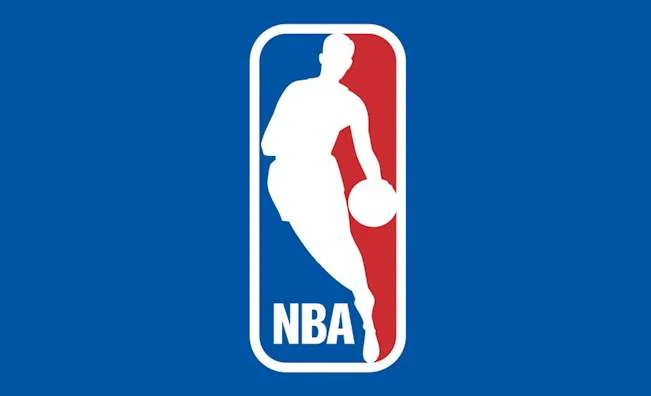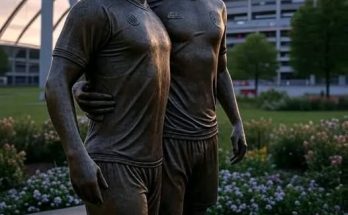The NBA Board of Governors is set to vote on the proposed sale of the Boston Celtics, one of the league’s most storied franchises. This decision marks a pivotal moment in the history of the Celtics, a team with a legacy deeply intertwined with the NBA’s growth and popularity. The potential sale has sparked widespread discussion among fans, analysts, and stakeholders, as it could reshape the future of the franchise and influence the broader landscape of the league.
The Boston Celtics, founded in 1946, are among the most successful teams in NBA history, with 17 championships to their name—tied for the most with the Los Angeles Lakers. The franchise’s golden era in the 1960s, led by Bill Russell, Red Auerbach, and a roster of Hall of Famers, established the Celtics as a dynasty. In the decades that followed, legends like Larry Bird, Paul Pierce, and Kevin Garnett further cemented the team’s legacy. The current ownership group, led by Wyc Grousbeck and including partners like Steve Pagliuca, has overseen a resurgence in the Celtics’ fortunes, including their 2008 championship and consistent competitiveness in recent years.
The decision to sell the team comes at a time of significant financial growth for the NBA. Franchise valuations have skyrocketed, with teams like the Phoenix Suns selling for $4 billion in 2023 and the Milwaukee Bucks valued at $3.5 billion earlier that year. The Celtics, given their history, market size, and recent success, are expected to command an even higher price, potentially exceeding $5 billion. This sale could set a new benchmark for NBA franchise valuations, reflecting the league’s global appeal and lucrative media deals.
The NBA’s Board of Governors, composed of representatives from each of the league’s 30 teams, must approve any ownership change. The process involves a thorough review of the prospective buyers’ financial stability, commitment to the team’s success, and alignment with the league’s values. Historically, the Board has rarely blocked a sale, but it has imposed conditions to ensure stability, such as requiring new owners to maintain the team in its current market. In the case of the Celtics, any new ownership group would be expected to honor the team’s legacy while investing in its future.
Several high-profile investors and consortiums have reportedly expressed interest in purchasing the Celtics. Private equity firms, tech billionaires, and sports-focused investment groups are among the potential buyers. The involvement of private equity in NBA ownership has grown in recent years, with the league allowing institutional investors to acquire minority stakes. However, the Celtics’ sale could see a more traditional ownership model, with a primary individual or family taking control. Names like Steve Ballmer, who owns the Los Angeles Clippers, and David Tepper, owner of the NFL’s Carolina Panthers, have been floated as possible candidates, though no official bids have been confirmed.
One of the key considerations in the sale is the future of the Celtics’ basketball operations. Under the current ownership, President of Basketball Operations Brad Stevens has built a championship-contending roster featuring stars like Jayson Tatum and Jaylen Brown. The new owners will need to decide whether to maintain the existing leadership or bring in their own vision. Stability in the front office is crucial, as the Celtics are in a prime position to compete for titles in the coming years. Any disruption could risk derailing the team’s momentum.
Another factor is the TD Garden, the Celtics’ home arena, which is owned by Delaware North, a company controlled by the Jacobs family. The arena’s lease and potential renovations or relocations could play a role in the sale negotiations. Ensuring a state-of-the-art facility is essential for maximizing revenue and enhancing the fan experience. The new owners may explore upgrades or even a new arena, though such projects would require careful planning and community engagement.
For Celtics fans, the sale brings a mix of excitement and apprehension. While new ownership could inject fresh capital and ideas, there is always concern about changes to the team’s culture or direction. The Celtics’ identity is deeply rooted in their history, and fans will expect any new owners to respect that legacy. Community engagement, investment in player development, and a commitment to winning will be critical in winning over the fanbase.
The broader implications of this sale extend beyond Boston. The NBA is in a period of transition, with media rights deals up for renewal and expansion on the horizon. A record-breaking sale of the Celtics could further inflate franchise values, impacting future transactions. It could also influence the league’s approach to ownership rules, particularly regarding private equity and institutional investment. Additionally, the sale may set a precedent for other legacy franchises considering ownership changes in the coming years.
As the Board of Governors prepares to vote, the basketball world watches closely. The approval process is expected to be smooth, given the Celtics’ stature and the league’s desire to maintain stability. However, the details of the sale—such as the final price, the composition of the new ownership group, and their long-term plans—will shape the narrative for years to come.
In many ways, the Celtics’ sale is a reflection of the modern NBA—a league where tradition and innovation collide, where billion-dollar transactions are commonplace, and where the stakes for success have never been higher. For a franchise with such a rich history, the hope is that new ownership will honor the past while building a future worthy of the Celtics name. The Board of Governors’ vote will be the first step in that journey, setting the stage for the next chapter in one of basketball’s greatest stories.
Ultimately, the sale of the Boston Celtics is more than a business transaction; it is a passing of the torch. The new owners will inherit not just a team, but a legacy—one defined by championships, iconic players, and an unwavering connection to the city of Boston. How they choose to carry that legacy forward will determine whether this sale is remembered as a turning point or merely a footnote in the storied history of the Celtics.



